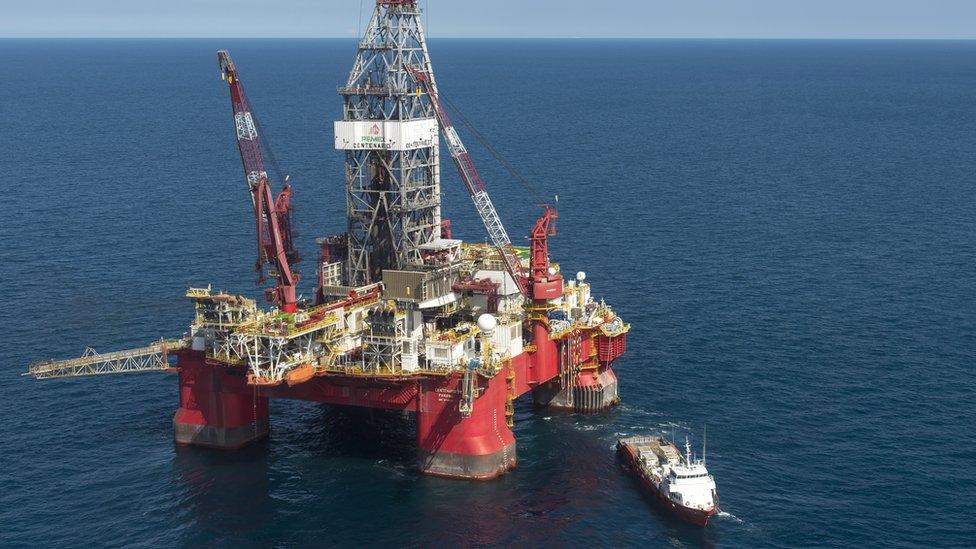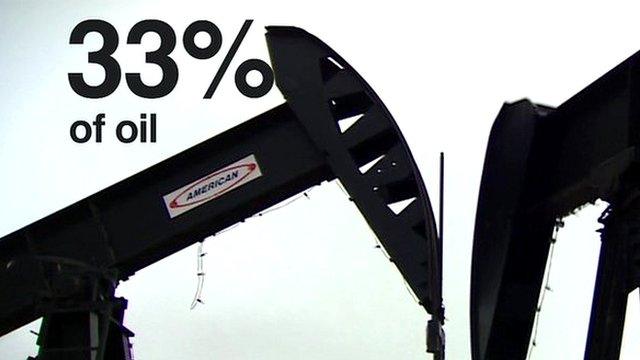Oil and gas companies 'risk losing $2tn'
- Published

The world's biggest oil and gas companies risk losing $2.2tn (£1.5tn) by overestimating future demand for fossil fuels, a report suggests.
By underestimating both legislation to cut the use of dirty fuels and the development of clean energy, these firms are investing in assets that may prove worthless, says Carbon Tracker.
Shell, Exxon Mobil and BP are among those most a risk, it says.
The report comes on the eve of the Paris climate change summit.
"If the industry misreads future demand by underestimating technology and policy advances, this can lead to an excess of supply and create stranded assets," says the report by the green think tank, external.
"This is where shareholders should be concerned - if companies are committing to future production which may never generate the returns expected."
Emissions targets
By assuming that policies are introduced to limit global warming to 2 degrees centigrade - the internationally accepted point at which rising temperatures could have dangerous consequences for the planet - the report suggests that many of the world's leading energy companies could lose tens of billions of dollars through unneeded expenditure.
The study says that Mexican state-owned oil company Pemex is the most at risk, to the tune of $77bn over the next 10 years. Shell ($76.9bn), Exxon Mobil ($72.9), Rosneft ($53.3bn) and BP ($45.5bn) make up the rest of the top five.
US energy companies are collectively most at risk, it says, with $412bn of potential stranded assets by 2025. Then comes Canada ($220bn), China ($179bn), Russia ($147bn) and Australia ($103bn).
Many countries have already implemented carbon dioxide reduction targets that will see reliance on fossil fuels decline, and hopes are high that a global deal to limit emissions can be agreed in Paris.
Renewable energy production is also rising faster than predicted, largely due to technological advances reducing costs.
'Natural decline'
However, oil and gas companies argue that the rise in demand for energy in the coming decades, particularly in emerging economies, means a big increase in supply is needed.
In the short and medium term, they argue, this will have to come from fossil fuels, as renewable energy sources cannot be scaled up from such a low base in time.
"The natural decline in the production rate of traditional energy sources is faster than increases we can likely achieve with alternative energy sources," a spokesperson for Shell told the BBC.
"Therefore, continued substantial investment is required to meet this depletion, as well as to meet demand to fuel economic growth, especially in the developing world, while at the same time supporting the energy transitions that are underway.
"Achieving a low carbon economy will only be possible with a combination of renewables, cleaner and accessible hydrocarbons and carbon capture and storage to provide a full suite of energy products for the growing global population, but with much less CO2 emitted."
- Published16 April 2015

- Published7 January 2015

- Published17 September 2015